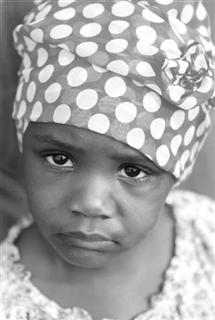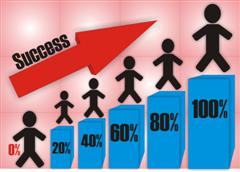|
Fair Trade Clothing...Business With A ConscienceFair trade clothing is just one area of internationally traded goods that requires serious attention and commitment to fair trade principals. What Is Fair Trade? Fair trade is the movement to alleviate global poverty and promote sustainability. Fair prices, social, and environmental standards are the focus to improve opportunities for disadvantaged people. 
The aim is to protect indigenous people from exploitation and protect human rights, social justice and sound environmental practices. A commitment to sustainable development, transparency, international trade equity, social justice, and respect are at it's core. So What Is Fair Trade Clothing? Traditionally, there is a process that is followed to get a garment from the person who made it to the consumer. Often it is passed through middlemen who have most likely paid the artisan just a small fraction of the purchase price. Under the Fair Trade agreement, less money goes to the intermediaries and more goes directly to the producer. Fair trade clothing is promoted so that these workers can sell their product directly to receive a fair purchase price. Worker owned associations and cooperatives enable the middleman to be bypassed. These associations are democratically run by the workers themselves, allowing them to make decisions that affect themselves and their communities. These people end up with more revenues for their hard work by eliminating the intermediaries without raising consumer prices. The system is in place to promote health working conditions, fair wages and fair prices to workers worldwide who are at a disadvantage. Exploitation is not accepted and child labor laws are enforced. Improved environmental practices and responsible production methods are encouraged. Many of these people are unable to meet the most basic human needs of food, clothing and shelter. Fair trade enables them to enrich their own lives and improve their communities by being able to maintain independence and improve their quality of life. Benefits of Ethical Trade Fair trade means giving a fair exchange. Farmers and artisans are empowered to become self-sufficient to raise themselves and their communities out of poverty be developing long term business relationships based on trust and respect. They gain skills, acquire experience, and are able to maintain stable, long term trade agreements. Fair labor conditions are enforced, education is promoted, the environment is protected and equitable international trade is sustained. Communities are enhanced with improved medical, educational and water facilities. These local, uplifting changes are brought about by the workers having their own voice to make decisions regarding the use of their profits. Why Buy Fair Trade Fashions? Think about it. There's a face behind every garment you buy. Every ethical trade choice is one of power rather than exploit. By buying fair trade clothing, the consumer supports the system that provides a healthy and safe work environment. You are supporting sweatshop free labor and demanding that the artisan's work is valued and rewarded properly. The consumer benefits by receiving goods that are unique and of higher quality. More importantly, consumption of fair trade clothing empowers consumers to actively promote sustainability, social justice, and raising awareness. Passionate ambassadors of ethical trade can propel
Social pressure for responsible business creates positive change in the world by proving that companies can put people ahead of corporate greed.
Care What You Wear... Where Can I Buy Fair Trade Clothing? The European Fair Trade market is very successful and Fair Trade clothing is more readily available. The trend is finally starting to make it's way over to the western world with consumer education and awareness regarding our social and environmental footprint. These companies promote sustainability and opportunity worldwide. By doing so, they offer hope, promise and vision for both individuals and communities.Does Fair Trade Clothing Mean Organic? Fair trade encourages and nurtures environmental responsibility, but not all fair trade goods are organic. However, many of them are. Contrarily, not all organic goods are necessarily fairtrade goods. How To Recognize Fairly Traded Products Our ultimate goal should be to get fair trade branding on every label. Consumer demand will urge this process along by creating a snowball effect so that more ethical trade products are available in the mainstream marketplace. Businesses will quickly adhere to keep up with the demand and maintain their viability. Look for the "Fair Trade Certified" label. This means the product has conformed to meet set standards. 


FLO-CERT - an independent international certification company that provides fair trade certification to more than 70 countries. Fair Trade Federation (FTF) - An association of organizations and business committed to fairtrade principals and raising awareness. You can find members here. Fair Trade International Federations In 1998 FINE was created as an association of the following fairtrade networks:
Committed organizations are in place in several countries, so you may want to search for more information country specific as well as globally. Sales of global fair trade certified and labeled goods have increased over the past few years. However, they still only account to up to 5% of all sales. Together we can make a difference. Supporting ethical trade will surely make the world a better place.
Return from Fair Trade Clothing to Sweatshop Free
|





 fundamental change globally by demanding that companies adopt the fair trade principals of accountability, transparency and cooperation.
fundamental change globally by demanding that companies adopt the fair trade principals of accountability, transparency and cooperation.